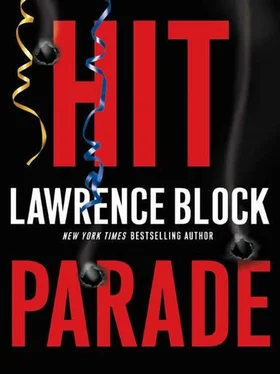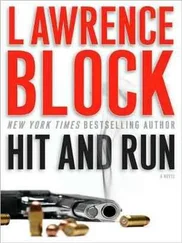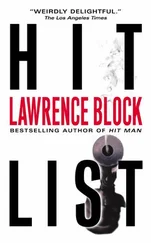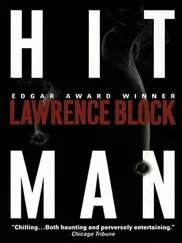“Will you look at that!”
Keller had been looking at the screen but without registering what he was seeing. Now he realized that Kissimmee Dudley was out in front, with a good lead on the rest of the field.
Keller’s little friend was urging him on. “Oh, you beauty,” he said. “Oh, run, you son of a bitch. Oh, yes. Oh, yes!”
Were any of the horses being held back? If so, Keller couldn’t see it. If he didn’t know better, he’d swear Kissimmee Dudley was simply outrunning all of the other horses, proving himself to be superior to the competition.
But wait a damn minute. That piebald horse-what did he think he was doing? Why was he gaining ground on Dudley?
“No!” cried the little man. “Where’d the Two horse come from? It’s that fucking Alvie Jurado. Fade, you cocksucker! Die, will you? Come on, Dudley!”
The guy had liked Jurado well enough when he was making money for him on Hypertension. Now, riding a horse called Steward’s Folly, he’d become the enemy. Maybe, Keller thought, the jockey was just trying to make it look good. Maybe he’d ease up at the very end, settling for the place money and avoiding any suspicion that he’d thrown the race.
But it was a hell of a show Jurado was putting on, standing up in the stirrups, flailing away with the whip, apparently doing everything he possibly could to get Steward’s Folly to the wire ahead of Kissimmee Dudley.
“It’s Kissimmee Dudley and Steward’s Folly,” the announcer cried. “Steward’s Folly and Kissimmee Dudley. They’re neck and neck, nose to nose as they hit the wire-”
“Shit on toast,” Keller’s friend said.
“Who won?”
“Who fucking knows? See? It’s a photo finish.” And indeed the word photo flashed on and off on the television screen. “Son of a bitch . Where did that fucking Jurado come from?”
“He gained a lot of ground in a hurry,” Keller said.
“The little prick. Now we have to wait for the photo. I wish they’d hurry. See, I really got behind that hunch of yours.” He showed a ticket, and Keller leaned over and squinted at it.
“A hundred dollars?”
“On the nose,” the little man said, “plus I got him wheeled in the five-dollar exacta. You got a hunch, and I bet a bunch. And he went off at twenty-eight to one, and if it’s a Six-Two exacta with him and Steward’s Folly, Jesus, I’m rich. I’m fucking rich. And you got two bucks on him yourself, so you’ll win yourself fifty-six dollars. Unless you went and played him to show, which would explain why you’re so calm, ’cause it’d be the same to you if he comes in first or second. Is that what you went and did?”
“Not exactly,” Keller said and fished out a ticket.
“A hundred bucks to win! Man, when you get a hunch you really back it, don’t you?”
Keller didn’t say anything. He had nineteen other tickets just like it in his pocket, but the little man didn’t have to know about them. If the photo of the two horses crossing the finish line showed Dudley in front, his tickets would be worth $58,000.
If not, well, Alvie Jurado would be worth almost as much.
“I got to hand it to you,” the little man said. “All that dough on the line, and you’re calm as a cucumber.”
Ten days later,Keller sat at his dining room table. He was holding a pair of stainless steel stamp tongs, and they in turn were holding a little piece of paper worth-
Well, it was hard to say just how much it was worth. The stamp was Martinique #2, and Keller had wound up bidding $18,500 for it. The lot had opened at $9,000, and there was a bidder in the third row on the right who dropped out around the $12,000 mark, and then there was a phone bidder who hung on like grim death. When the auctioneer pounded the gavel and said, “Sold for eighteen five to JPK,” Keller’s heart was pounding harder than the gavel.
It was still racing eight lots later when the second stamp, Martinique #17, went on the block. It had a lower Scott value than #2, and was estimated lower in the Bulger amp; Calthorpe sales catalog, and the starting bid was lower, too, at an even $6,000.
And then, remarkably, it had wound up sailing all the way to $21,250 before Keller prevailed over another phone bidder. (Or the same one, irritated at having lost #2 and unwilling to miss out on #17.) That was too much, it was three times the Scott value, but what could you do? He wanted the stamp, and he could afford it, and when would he get a chance at another one like it?
With buyer’s commission, the two lots had cost him $43,725.
He admired the stamp through his magnifier. It looked beautiful to him, although he couldn’t say why; aesthetically, it wasn’t discernibly different from other Martinique overprints worth less than twenty dollars. Carefully, he cut a mount to size, slipped the stamp into it, and secured it in his album.
Not for the first time, he thought of the little man at the OTB parlor. Keller hadn’t seen him since that afternoon, and doubted he’d ever cross paths with him again. He remembered the fellow’s excitement, and how impressed he’d been by Keller’s own coolness.
Cool? Naturally he’d been cool. Either way he won. If he didn’t cash the winning tickets on Kissimmee Dudley, he’d do just about as well when he punched Alvie Jurado’s ticket. It was interesting, waiting to see how the photo came out, but he couldn’t say it was all that nerve-wracking.
Not when you compared it to sitting in a hotel suite in Omaha, waiting for hours while lot after lot was auctioned off, until finally the stamps you’d been waiting for came up for bids. And then sitting there with your pencil lifted to indicate you were bidding, sitting there while the price climbed higher and higher, not knowing where it would stop, not knowing if you had enough cash in the belt around your waist. How high would you have to go for the first lot? And would you have enough left for the other one? And what was the matter with that phone bidder? Would the man never quit?
Now that was excitement, he thought, as he cut a second mount for Martinique #17. That was true edge-of-the-chair tension, unlike anything those Jerry Orbach look-alikes in the OTB parlor would ever know.
He felt sorry for them.
What difference did it make, really, how the photo finish turned out? What did he care who won the race? If Kissimmee Dudley held on to win by a nose or a nose hair, it was up to Keller to work out a tax-free way to cash twenty $100 tickets. If Steward’s Folly made it home first, Alvie Jurado moved to the top of Keller’s list of Things to Make and Do. Whichever chore Keller wound up with, he had to pull it off in a hurry; he had to have his money in hand-or, more accurately, in belt-when his flight took off for Omaha.
And now it was over, and he’d done what he had to, so did it matter what it was he’d done?
Hell, no. He had the stamps.
Keller, waiting forthe traffic light to turn from red to green, wondered what had happened to the world. The traffic light wasn’t the problem. There’d been traffic lights for longer than he could remember, longer than he’d been alive. For almost as long as there had been automobiles, he supposed, although the automobile had clearly come first, and would in fact have necessitated the traffic light. At first they’d have made do without them, he supposed, and then, when there were enough cars around for them to start slamming into one another, someone would have figured out that some form of control was necessary, some device to stop east-west traffic while allowing north-south traffic to proceed, and then switching.
He could imagine an early motorist fulminating against the new regimen. Whole world’s going to hell. They’re taking our rights away one after another. Light turns red because some damn timer tells it to turn red, a man’s supposed to stop what he’s doing and hit the brakes. Don’t matter if there ain’t another car around for fifty miles, he’s gotta stop and stand there like a goddam fool until the light turns green and tells him he can go again. Who wants to live in a country like that? Who wants to bring children into a world where that kind of crap goes on ?
Читать дальше












